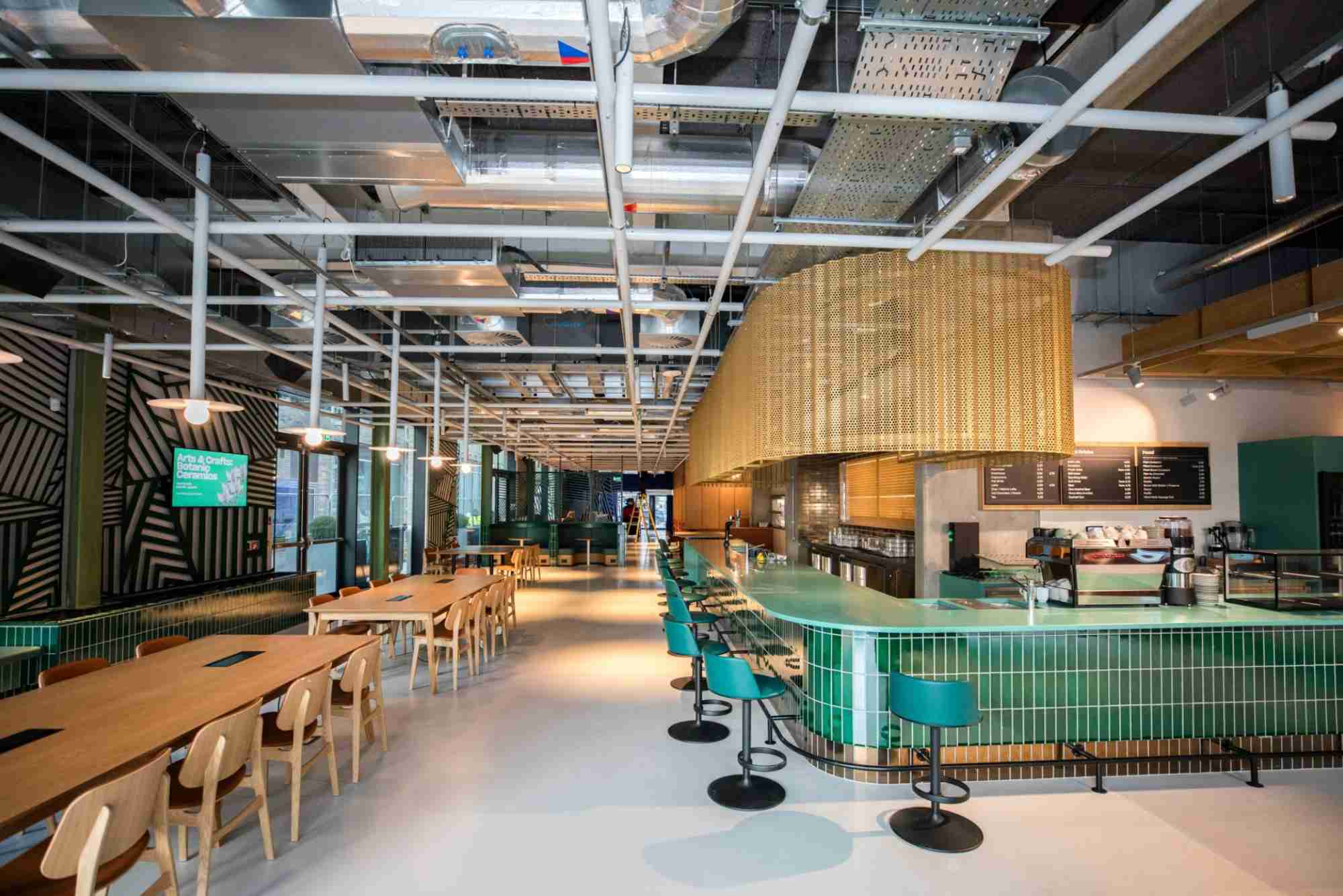Latest Social Welfare Department KPK Trends You Shouldn’t Miss
The social welfare department KPK has rapidly evolved during the past few years, introducing programs designed to uplift vulnerable communities, empower youth, support women, and promote inclusive development. As the province continues to invest in public well-being, new trends are emerging that every citizen, policymaker, NGO, and development professional should understand. These trends reflect a shift toward innovation, digital inclusion, and transparent service delivery. In this detailed guide, we explore the latest developments, why they matter, and how they are changing the lives of people across Khyber Pakhtunkhwa.
The goal is to help you stay updated and make informed decisions, whether you work in the development sector or simply want to understand how welfare services impact your community.
Digital Transformation is Reshaping Social Services
One of the most significant trends in the social welfare department KPK is its shift toward digital solutions. The department has begun using online systems to streamline tasks that previously required multiple physical visits. These updated services are designed to ensure transparency, speed, and broader access, especially for people living in rural districts.
E-Registration for Welfare Programs
The introduction of digital registration portals has redefined how citizens apply for welfare initiatives. Users can now submit applications, upload documents, and track progress from their mobile devices. This reduces delays and minimizes fraud, as each application is electronically recorded.
Data-Driven Decision Making
The department increasingly relies on digital data to identify eligible households and monitor program performance. This trend ensures that support reaches those who need it most. Data analytics also highlight underdeveloped areas, guiding resource allocation with improved precision.
A Stronger Focus on Women and Child Protection
Women and children remain central to social welfare programs in KPK. As the department expands its mandate, new initiatives emphasize safety, skill development, and support for vulnerable groups who have historically faced challenges accessing services.
Enhanced Support for Women at Risk
The department has expanded the network of Dar-ul-Aman shelters, providing protection, legal support, and psychological counselling. Many facilities now offer skills training programs, enabling women to build financial independence after leaving abusive environments.
Child Protection Units Across Districts
Child protection units have grown in number and capacity. These units handle cases of child abuse, forced labor, early marriage, and trafficking. Trained caseworkers and psychologists provide intervention, ensuring better safety nets than ever before. The focus has shifted from reactive support to proactive prevention through awareness campaigns and school visits.
Special Initiatives for Persons With Disabilities
A noticeable trend is the increased attention toward persons with disabilities, ensuring equal opportunities and accessible environments. The social welfare department KPK has prioritized inclusion in education, employment, and public participation.
Disability Certification and Assistive Devices
The revamped disability certification system ensures faster processing and standard assessments. Distribution of assistive devices such as wheelchairs, hearing aids, and white canes has expanded, allowing more individuals to live with independence and dignity.
Inclusion in Government and Private Jobs
Vocational training centers have introduced new courses tailored for differently-abled individuals. Partnerships with private employers aim to create inclusive workplaces, reflecting a gradual but meaningful shift in societal attitudes.
Skill Development and Youth Empowerment Programs
Youth make up a large percentage of the provincial population, so the department continues to roll out initiatives that prepare them for the job market. These programs address unemployment while encouraging entrepreneurship.
Technical Training for Underprivileged Youth
Collaboration with technical institutes has made certified training accessible to thousands of young people. Courses in digital skills, tailoring, plumbing, and mobile repair equip them with market-relevant abilities.
Entrepreneurship Support and Micro-Financing
New programs help young entrepreneurs start small businesses by providing coaching, business planning assistance, and access to micro-financing. These initiatives encourage youth to become self-reliant instead of relying solely on government jobs.
Community Rehabilitation and Social Inclusion Programs
The social welfare department KPK is investing in rehabilitation centers to support individuals facing social, mental, and financial challenges. These centers play a vital role in reintegrating people into society, restoring confidence, and rebuilding families.
Rehabilitation for Drug Dependence
Drug rehabilitation programs have expanded with improved medical care, therapy sessions, and community reintegration plans. The shift from punishment to treatment reflects a more humane approach.
Senior Citizen Support
As elderly populations rise, the department is launching day-care centers and home-based support services. These programs ensure dignity, companionship, and medical supervision for older citizens.
Public-Private Partnerships Strengthening Welfare Services
One key trend is the department’s collaboration with NGOs, private companies, and international development agencies. These partnerships allow the province to scale programs, bring in new expertise, and ensure better monitoring.
NGOs Supporting Local Communities
Non-governmental organizations assist in child protection, women’s rights, disability inclusion, and disaster response. This shared responsibility strengthens program impact.
Corporate Social Responsibility (CSR)
Private companies contribute through CSR programs, funding schools, health services, and vocational training centers. These partnerships bring innovation and sustainability to welfare initiatives.
Increased Transparency and Monitoring Mechanisms
To address long-standing concerns about transparency, the social welfare department KPK is adopting strict monitoring systems. These ensure resources are used responsibly and programs achieve measurable results.
Third-Party Evaluations
Government programs now undergo external evaluations, providing unbiased insights into performance. These evaluations help refine policies and eliminate inefficiencies.
Mobile Monitoring Applications
Field officers use mobile apps to report program progress in real-time. This trend ensures timely reporting and better accountability.
Community Awareness and Outreach Campaigns
Public awareness campaigns are becoming more frequent, using both digital media and community-level engagement. These campaigns increase public knowledge about available welfare services and teach people how to seek help when needed.
Awareness on Child Rights
Educational programs in schools highlight the importance of child rights, the harms of child labor, and the necessity of early education.
Domestic Violence and Mental Health Campaigns
Campaigns encourage victims to seek help through hotlines and support centers. Discussions on mental health awareness are gaining traction, helping reduce stigma and encouraging community support.
How These Trends Are Shaping the Future of KPK’s Welfare System
Taken together, these developments show strong progress toward inclusivity, modernization, and social equity. The emphasis on digital systems, youth empowerment, disability inclusion, and transparency demonstrates a forward-thinking approach to governance. While challenges remain—especially in remote areas—ongoing reforms signal a promising future.
The social welfare department KPK is steadily becoming more responsive and accessible, ensuring that citizens receive the support they need at the right time. These changes will continue influencing how the province manages social protection, poverty reduction, and community development.
Expert Insights and Helpful Resources
To explore more insights about digital transformation, modern marketing strategies for NGOs, awareness campaigns, or public communication, you can consult professional platforms. For advanced optimization strategies, you may also consider seeking SEO Expert Help, which you can find at mdijazn.com for guidance tailored to your digital presence. Likewise, if you want to improve communication and outreach for welfare programs, the HubSpot Marketing Blog provides excellent resources for building engagement and managing impactful campaigns.
Stay Informed and Get Involved
The latest trends in the social welfare department KPK highlight a new era of innovation and community-centered services. As these programs expand, staying informed becomes increasingly important. Whether you’re a resident, activist, or policymaker, understanding these developments enables you to support and shape the province’s social future.
If you want to stay updated on more welfare initiatives, policy changes, and empowerment programs, continue exploring trusted sources and government announcements. Your voice and participation matter—get involved and help build a stronger, more inclusive Khyber Pakhtunkhwa.
Frequently Asked Questions
What services does the Social Welfare Department KPK provide?
It offers support for women, children, elders, persons with disabilities, and youth, including protection centers, rehabilitation, financial aid, and skill training.
How can I apply for welfare programs in KPK?
Most programs now offer online registration through official portals, allowing you to submit documents and track your application electronically.
Is the department offering new initiatives for women?
Yes, expanded shelter homes, legal support, counselling services, and skill development programs are part of the newest reforms.
What support is available for persons with disabilities?
The department provides disability certification, assistive devices, job opportunities, and vocational training courses for various skill levels.
How can I report child labor or abuse in KPK?
You can contact local Child Protection Units or official helplines to report abuse, exploitation, or safety concerns.







